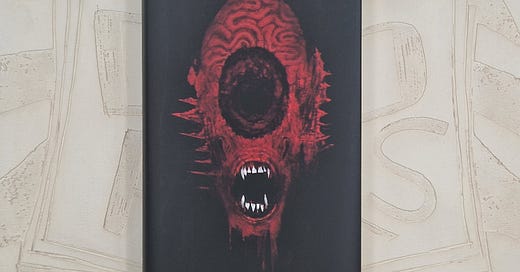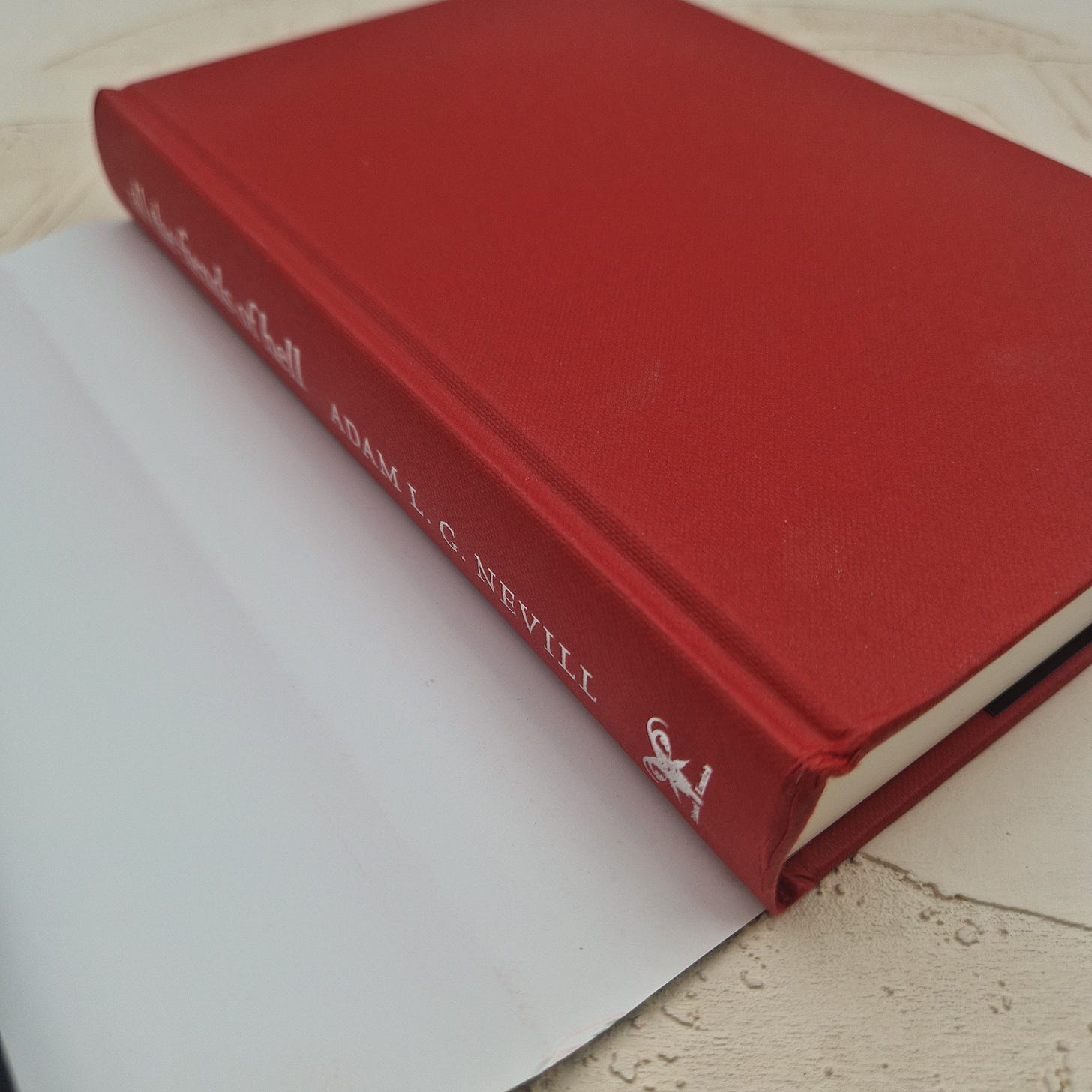Apocalyptic nightmarescape grounded by human nature.
Picture The Rapture curated by aliens for reasons unknown. Roadside Picnic if the visitors were malicious. A John Wyndham setting populated by Clive Barker’s abominations. The combination of all these images probably paints you half a picture of Nevill’s book, unique yet familiar, but the other half… well that’s what makes this book truly great.
Meet Karl, our unprepared, unspectacular protagonist. You’ve probably met a million Karl’s; in fact, you probably ARE a Karl, and that’s the point. Karl is an Everyman. His dreary nonexistence (divorce, unfulfillment, the whole works) left him with no weapons in his horror survival arsenal. The result of which is that we get to see ourselves in this nightmarish situation. It’s us, inglorious and introspective, not a heroic Jack Reacher character, tasked with outrunning the horrors and helping the other unfortunate souls, and how the hell are we supposed to deal with that?
Oh boy does Karl’s relatability make you feel vulnerable. Every smell, sound and squeaky door was an invasion of my ego as I read suspiciously onwards, waiting for the next terrible thing to happen, knowing that we aren’t going to strongarm our way out of here. The aliens (I’m calling them that despite their similarity to Angels, Demons, or Lovecraftian Gods) felt real. Their danger vibrated from the page like an bell tolling (sorry, I had to. Read the book to get the reference). This is the first book in a long time to make me feel actual fear.
I mentioned helping unfortunate souls, kid characters Jake and Hayley were pivotal to the motivation of the protagonist, giving Karl drive where there once was none. Their relationship with each other is wholly believable; the whole dynamic made the fear more real, them being young and vulnerable and all, but in the end it was them who saved Karl by giving him reason to exist. A less melancholic ‘The Road’ (spectacular novel by the late Cormac McCarthy). Would Karl have even been motivated without them? What is the purpose of survival if not for your family, be it blood bound or found? There were other survivors who added dimensions to this book, too, each with their own flavour of humanity, for better or worse. I’ll not spoil anything, but I’ll leave you with this thought: when laws, civility and sanity have crumbled like broken crisps, who is more scary? The sharp-toothed monster, or the friendly face with a screw loose?
Location Location Location! I was born and raised in the area that this book is initially set (south Birmingham), so there is a risk that I am viewing Nevill’s worldbuilding through rose tinted lenses. That being said, I truly think fans of British horrors will be giddy with joy by the way the world is explored. Something about how unassuming Britain is makes for a fantastic location for horror. I can’t quite explain it. Something about the vulnerability of a cottage village just feels like the perfect place for nasty monsters. Am I chatting bollocks? Maybe it’s because aliens in America is overdone. I get the same giddiness reading Wyndham; in fact, I felt some of “The Day of the Triffids” in Nevill’s book.
The Atmosphere! A big part of what makes this book scary is Adam’s use of language when describing atmosphere. The moment the aliens come into scene (and even when they’re no where near) there is a sense of impending dread that reminds me of Jeff VanderMeer’s Southern Reach books and some of Lovecraft’s work. An element of the incomprehensible, mixed with borderline poetic descriptions of chemical smells and wobbly things chasing you down narrow corridors. And that final act? Terrifying. All the Fiends of Hell is a vicious concoction of creepy literary devices, including it’s lack of exposition. I’m a big fan of underexplained nightmarestuff. One of the reasons I felt the need to mention the Strugatsky’s book “Roadside Picnic” earlier is because the aliens motivation was not presented in this book; I love this literary device - it immerses you deeper. The spell would have been broken if there was more exposition. It’s truer to life, this way, too.
Structurally this book was sound. The pacing worked well. Scary bit; slow bit; scary bit; slow bit, etc. The plot was straightforward and undistracting, which left the atmosphere and horror elements in the spotlight, basking in their glories.
I’ll summarise by saying that I loved this book. It is a near-perfect horror. This was my first Adam Nevill, and I’m already eyeing up The Ritual.





